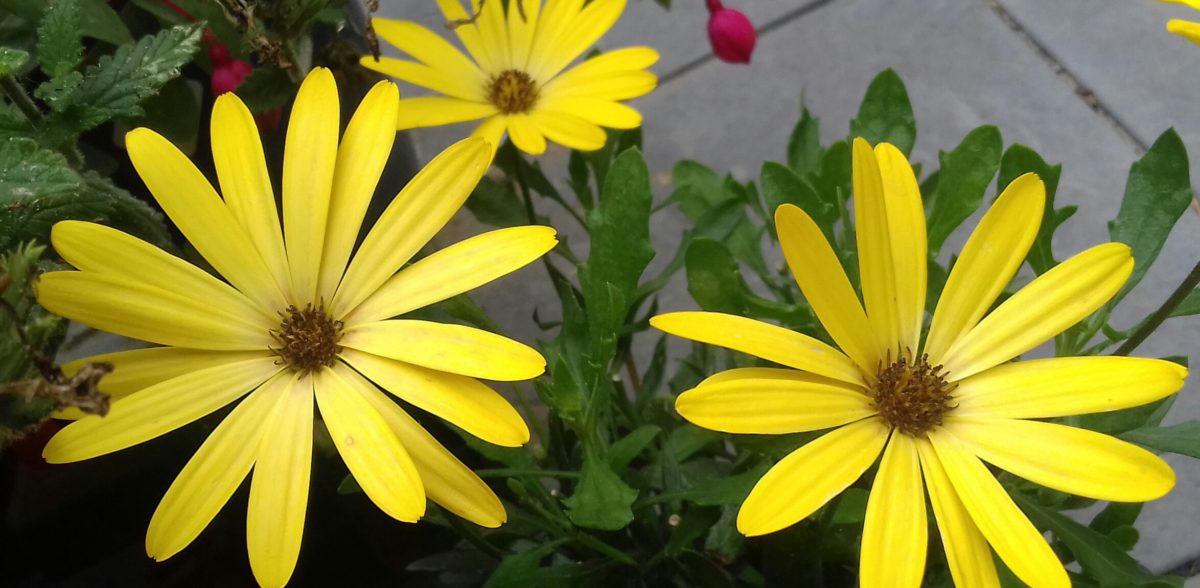
We don’t like to talk about death in our English culture.
We don’t like to talk about anything even remotely unpleasant really. Instead we adopt a mentality of, if I don’t look, see, or speak of said unpleasantness, I can simply pretend it is not so.
Yet such a passive approach falls rather majorly short in the face of the unpleasantness of death itself, with all its unflinching finality. We may not look, see or speak of the business of death openly, but when death comes to someone you love, you feel it with very fibre of your being.
And it feels …
Incomprehensible.
Surreal.
Irreversible.
Shocking.
Unbelievable.
Painful.
It stuns you in to slow motion. A daze and a haze that you haul yourself back from in order to undertake your day to day responsibilities. You can’t quite get your head around how said person can no longer be here. Yet you know that this is unarguably the case.
There is a gap. One that no one and no thing can fill.
Nor is it wise to try. And I have tried very hard with chilli peanuts and cake (not together) but food is so NOT the answer to the absence of life that death creates. Ditto alcohol/drugs/spending/suppressant of choice.
At least this is my experience. Yours may be vastly different. Or there may be some parallels. I don’t know. All I do know is that we need to talk about the difficult stuff, especially this death stuff.
Because as much as we look away,
denying our own and others decay,
death is here
and it’s here to stay.
And we need to talk about this cold, hard reality. Or rather, I know I do.
Because otherwise we risk failing to receive the fullness of the gift that life itself offers. For if death remains swept under the carpet or branded taboo or off limits, we give it the power and potential to destroy us from within. Maybe through an unspoken or unconscious fear that can paralyse us from engaging with life or risk. For some, a hardening of the heart in a misguided attempt to protect the existing pain whilst seeking to insure against more. Either option guarantees a death of sorts. The worst kind of death, the death experienced whilst still alive.
How can we ensure we don’t simply settle for a safe-chasing existence of mere survival, without facing up to the reality that death will come to us all. And in its own often unpredictable or even premature timing. We are powerless to stop it.
Yet paradoxically, by engaging with the presence of death, we can get real about the opportunities of life. We can re-evaluate in what, who, where, and for why, we want to invest our love, energy and talents. We can stop to question ourselves afresh.
What is my purpose?
What am I here for?
And what am I doing about that?
I never heard of anyone on their death bed uttering the words, ‘I’m so gutted I made the time to honestly and regularly review my life to identify where I was, where I wanted to be and what steps were required to get me from one to the other.’ Or, ‘I regret taking those risks, following my dreams, or committing my life to serving a purpose greater than myself.’ Or even, ‘if only I’d loved fewer people or held more grudges’.
And yet all too many of us ‘live’ our lives too afraid to be who we are, too cautious to pursue the dreams that arise within us again and again, too oppressed by the opinions of others, real or imagined, to actually risk releasing our own potential and to the benefit of all. Or for some, simply too set upon seeking security in the financial to risk pursuing the meaningful.
Others simply shut down their hearts, refusing to love if they’ve already lost. Whilst some engage in futile attempts to deny deaths reality by fighting the facts of ageing.
We all struggle in some way or another, consciously or unconsciously, with accepting death as a non-negotiable component of life.
Yet death is a given for all for which there is no avoidance, no escape, no get out of death free card.
I was going to write, no get out of life, alive, card. But of course, that depends upon your beliefs. Whilst many consider Heaven to be a defence against death on the part of those of us who believe, I consider a lack of belief to be a potential defence against the ultimate giver of life, by those who don’t. I’m talking here of the kind of life that is only possible following a total surrender to the only one who is able to take any of our lives from the natural to the supernatural. (Still got my L plates on here personally)
But, whatever our beliefs, it’s time to face up to the truth that death will come.
And the clock will continue to tick.
We need to wake up people.
You.
Me.
Us.
We need to live like we know that life is not an ongoing offer with no end point. It’s limited. It has an expiry date. I do. You do. We all do.
And amidst the mix of allowing space to grieve for the lost, loved one, the big question remains; what are we going to do about the reality of death?
Or more importantly, how will we allow it to influence how we engage with life?
